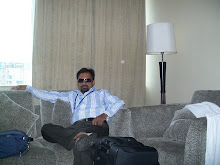Dhankut S’ Struggle Towards Equitable Society For Survival And
Growth : An Observation
Dr. Alok Chantia
Dr. Preeti Misra
Dr. Rohit Misra
Abstract
Different castes and cultures make Homo sapiens a stratified man in society. In Indian
context, caste system and value system has given a new horizon to equitable society. The
equitable society is encompassed with social justice which comes from equal opportunity
to everyone and awareness of human rights that everyone is born free and equal. Thus
pillar of equitable society is casteless society. But irony is that there are certain groups of
people who do not know their caste, they are casteless but still they are devoid of basic
facilities of life. One such group of people is Dhankut living in District Bahraich of
Uttar Pradesh, who are neither SC/ST/OBC nor listed in any caste or sub caste. They are
very far from all those facilities which are available to weaker sections of a society. Due
to small population (2687) and living at single place (Dhankutty pura), Dhankut could not
draw any attention of the government for their upliftment. Since their caste is not known,
cross-cousin and parallel cousin marriages generated amongst them in order to maintain
their identity and lineage. Dhankut are very poor and mostly illiterates hence they have
taken up small works like thela pulling, betel selling .They can be seen in the streets of
Dhankuttypura selling ground nuts ,grams etc. Dhankut women are making and selling
cow dung cakes by collecting cow dung from the vicinity. Their children are also
working to earn the livelihood for the family. Due to poverty they cannot go to hospital
and civil court etc. hence they depend upon quacks for treatment and upon traditional
panchayat for the resolution of their disputes. Dhankut are fighting for their identity since
1973 and they have formed "Dhankut Sangharsh Samiti" for the purpose. A case is also
pending in this regard in State Backward Commission since 2004.Dhankut have occupied
some seats in Municipal Board too in their struggle towards equitable society.
The object of present paper is to analyse how a group of people who do not know their
caste, struggle and survive in the society. As the hypothesis is that one should be aware of
its caste to reap the benefits of equitable society, the present paper examines in detail
whether Dhankut are living in equitable society and what struggles they have made for
their survival and growth.
Subscribe to:
Post Comments (Atom)

No comments:
Post a Comment